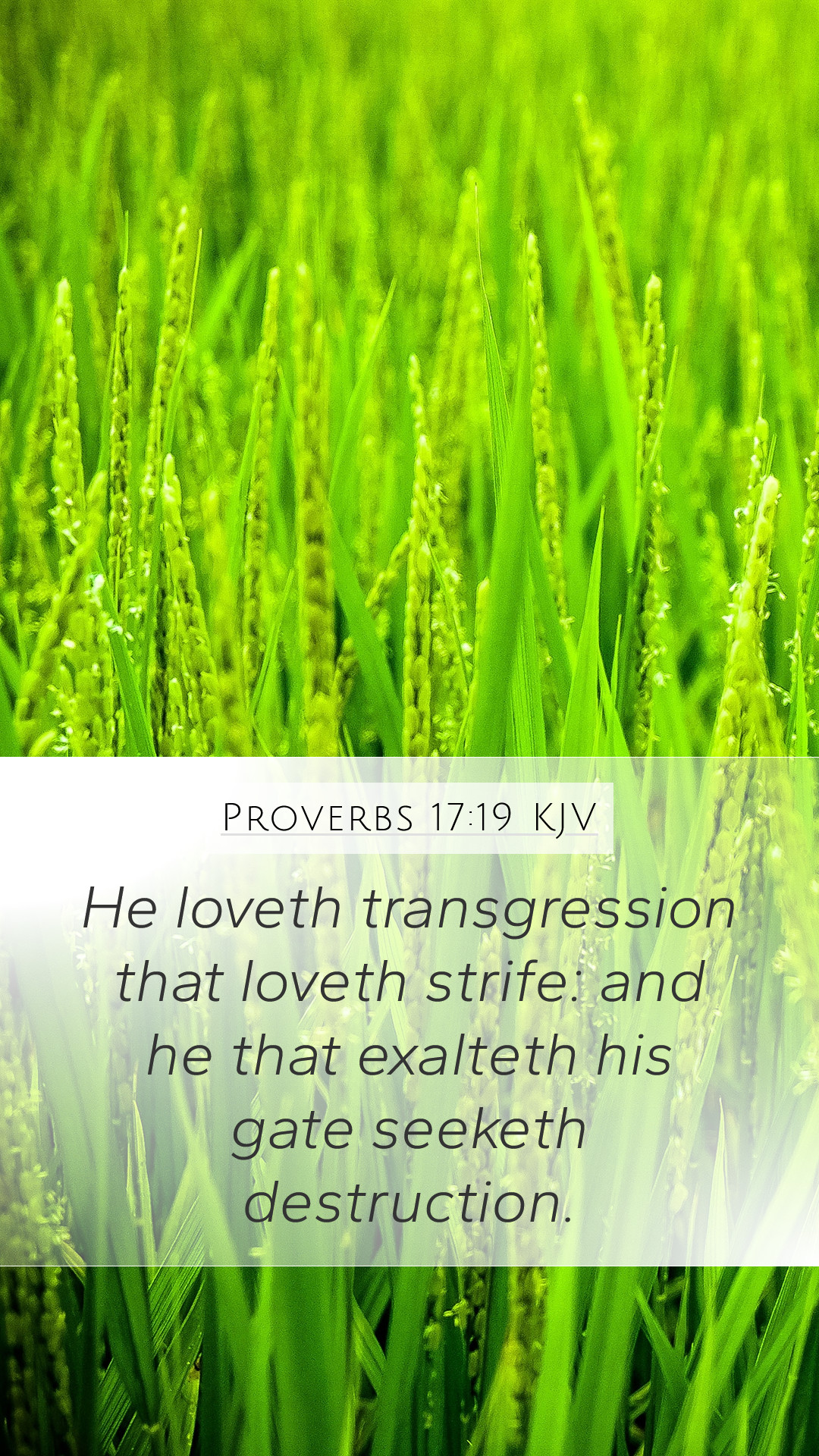Understanding Proverbs 17:19
Proverbs 17:19 states, "He who loves transgression loves strife; He who builds a high gate seeks destruction." This verse highlights critical themes of conflict, morality, and the consequences of one's actions.
The insights from various public domain commentaries enhance our bible verse understanding. By analyzing the interpretation of this verse, we can glean valuable lessons applicable to our lives today.
Verse Analysis
This verse presents a dual warning: it addresses both the lover of transgression and the one who seeks to protect themselves through elevated status. Through commentary, we can reflect on the deeper meanings:
- Love for Transgression: Matthew Henry notes that loving transgression is synonymous with inviting strife. Engaging in wrongdoing or supporting others in their wrongdoings cultivates discord.
- Consequences of Actions: Albert Barnes emphasizes that those who are involved in wrongdoing effectively foster conflict and chaos in their lives and in the lives of others.
- Building High Gates: Adam Clarke interprets the ‘high gate’ as a metaphor for arrogance and self-preservation, suggesting that constructing barriers against others can lead to one’s own downfall.
Deeper Insights
To further enhance our Bible verse commentary, we can look at the broader context of Proverbs. Proverbs as a whole teaches practical wisdom for everyday living. This particular verse warns against the behaviors and attitudes that lead to conflict, reflecting the essence of moral integrity.
Additionally, the verse warns against the pitfalls of pride, as “he who builds a high gate” indicates a protective mentality that can often isolate one from community and connection.
Practical Applications
Our Bible study insights should encourage us to avoid loving transgression which leads to strife. This means letting go of a tendency to harbor resentment or strife in our relationships. Instead, we are encouraged to pursue peace and morality. Here are a few applications:
- Self-Reflection: Evaluate your own actions and motivations. Are there areas in your life where you might unintentionally cause strife?
- Enhancing Relationships: Striving to build bridges instead of walls, recognizing that community is essential.
- Seeking Wisdom: As with many proverbs, understanding the wisdom behind decisions may prevent future conflicts. This includes learning how to interpret Bible verses correctly.
Cross References
Proverbs 17:19 connects to several other verses that reflect similar themes:
- Proverbs 20:3: "It is an honor for a man to cease from strife, But any fool will quarrel."
- James 3:16: "For where envy and self-seeking exist, confusion and every evil thing are there."
- Proverbs 10:12: "Hatred stirs up strife, But love covers all sins."
Through biblical exegesis of Proverbs 17:19, we glean a profound understanding of the consequences of our choices, urging us to live righteously to foster peace rather than conflict. By engaging with this verse through bible study tools and resources, individuals and groups can explore the depth of advice contained in this wisdom literature.


